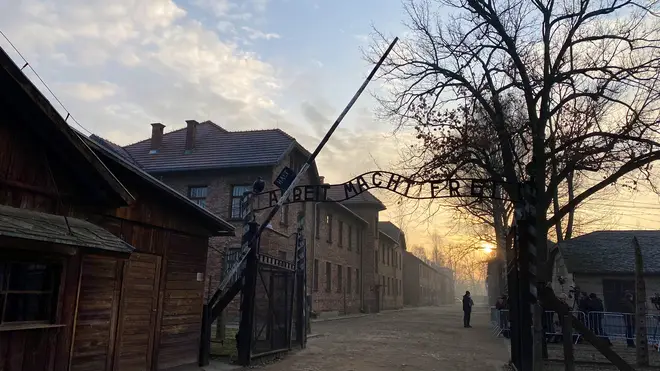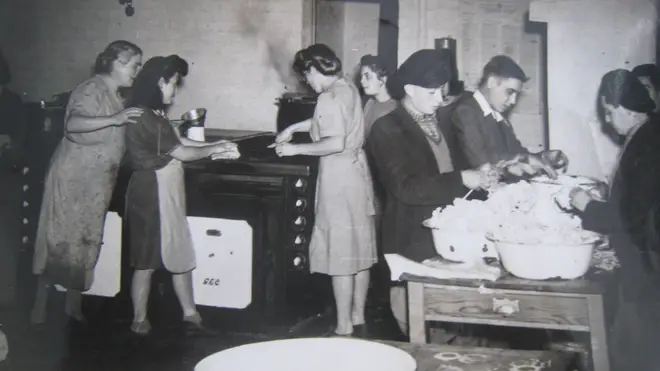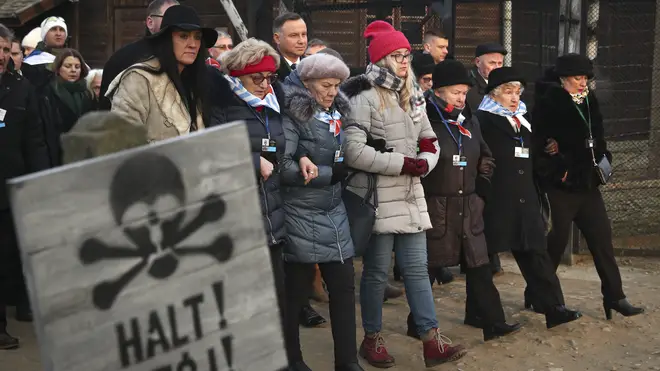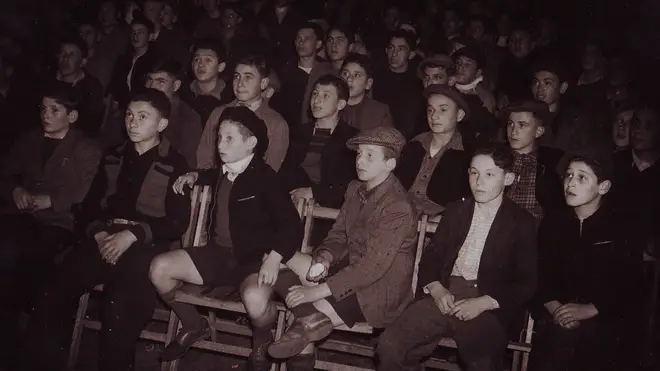
Richard Spurr 1am - 4am
27 January 2020, 12:03

Events and commemorations are being held across the world today to mark Holocaust Memorial Day.
Survivors will honour the victims at ceremonies here and in Europe on the 75th anniversary of the liberation of Auschwitz.
One group have seen their story turned into a film that will be broadcast here and in Germany at the same time.
'The Windermere Children’ tells the story of 300 Jewish children who were brought to live in the Lake District at the end of the war.
They’d survived Auschwitz and Theresienstadt but had been left with nothing.
One of those children was Arek Hersh. Arek was 11 when he was taken to his first concentration camp.
The camp started with 2,500 men, 18 months later there were 11 survivors.
As a child, he was moved to several camps before eventually being liberated Theresienstadt in Czechoslovakia on 8 May 1945.
By the end of the war, Arek had lost 81 members of his family, only he and his sister survived.

75 years on, Arek and I meet at Low Wood hotel, overlooking Lake Windermere.
After the horrors of the concentration camps, the years of torture and starvation many of the children making the journey struggled to believe they were safe.
Upon arriving at the Calrgarth Estate where they were to be homed and seeing their new surroundings, they nicknamed it ‘Wondermere’.
Arek said: "It was a wonderful thing for us children, we lost everybody. Here at least we started to live like human beings again.

Arek stayed in the UK, going on to live in Manchester, Liverpool and settling in Leeds and having a family. He was reunited with his sister in 1947, she moved to America and asked Arek to join her, the prospect of the Korean war and the thought of being called up to fight led to him making the decision to stay here saying “I’d seen too much war”.
For the survivors who came to Windermere, it marked the start of a journey to reclaim life, something Arek says was difficult; “It took me a long time it took me about 30 years to get my life back to certain extent.
"I had a lot of nightmares, that was terrible. Since I wrote my book, I've stopped having nightmares and stopped having bad dreams and I've got a normal life, as normal as could have now”.

Arek and Windermere
00:01:21

The children were welcomed with open arms by the people who lived in Windermere. Friendships were made, donations of clothes sent, children lent them their bikes, they were able to go to the movies. Arek recalls fondly seeing ‘Meet in me in St Louis’ with Judy Garland, it was the first film he’d ever seen.
The story of the Windermere children is relatively unknown. The Lake District Holocaust Project has kept it alive.
Volunteers have spent years tracing those involved, collecting stories and documenting them at Windermere Library.
Trevor Avery is one of those volunteers he said; “I couldn't find anything about it but I came across by Sir Martin Gilbert and I came across the boys and girls in London and they said 'Ah Wondermere'.
Time was marching on and there was a danger that we would lose too many before we got round to it so we spent a lot of time rushing around the Lake District and London, speaking to people on the phone in America and Israel just collecting their stories".
"What they lived through, what they survived and when they came and rebuilt their lives, it's a fantastic example of resilience. They turned against hatred, they could have been eaten up by it, they had every justification to hate humanity after what they'd been through and what humanity had done to them and they turned their backs on it".

Arek Hersh @ Calgarth
00:00:18
At 91 Arek gives talks to children and groups about what he went through so that we never forget: “It is important because otherwise many millions of people died for nothing only because they were a different religion.
"That's why they died because they were Jewish or Gypsy's or whatever the Germans were against. They gassed the people, they killed the people," he told LBC.
"I remember coming to Auschwitz and hundreds and hundreds of people every day were coming in trains and most of them were sent to the gas chambers straight away. They had no feeling at all, millions of people were killed that way."
"Have we learned? No, there's still wars that goes on in different countries, there's still fighting goes on. Human beings have not really learnt to settle down and to be happy. "
Why Fight and have wars? Thank Goodness here in Britain we are alright, but we still have lessons to learn".